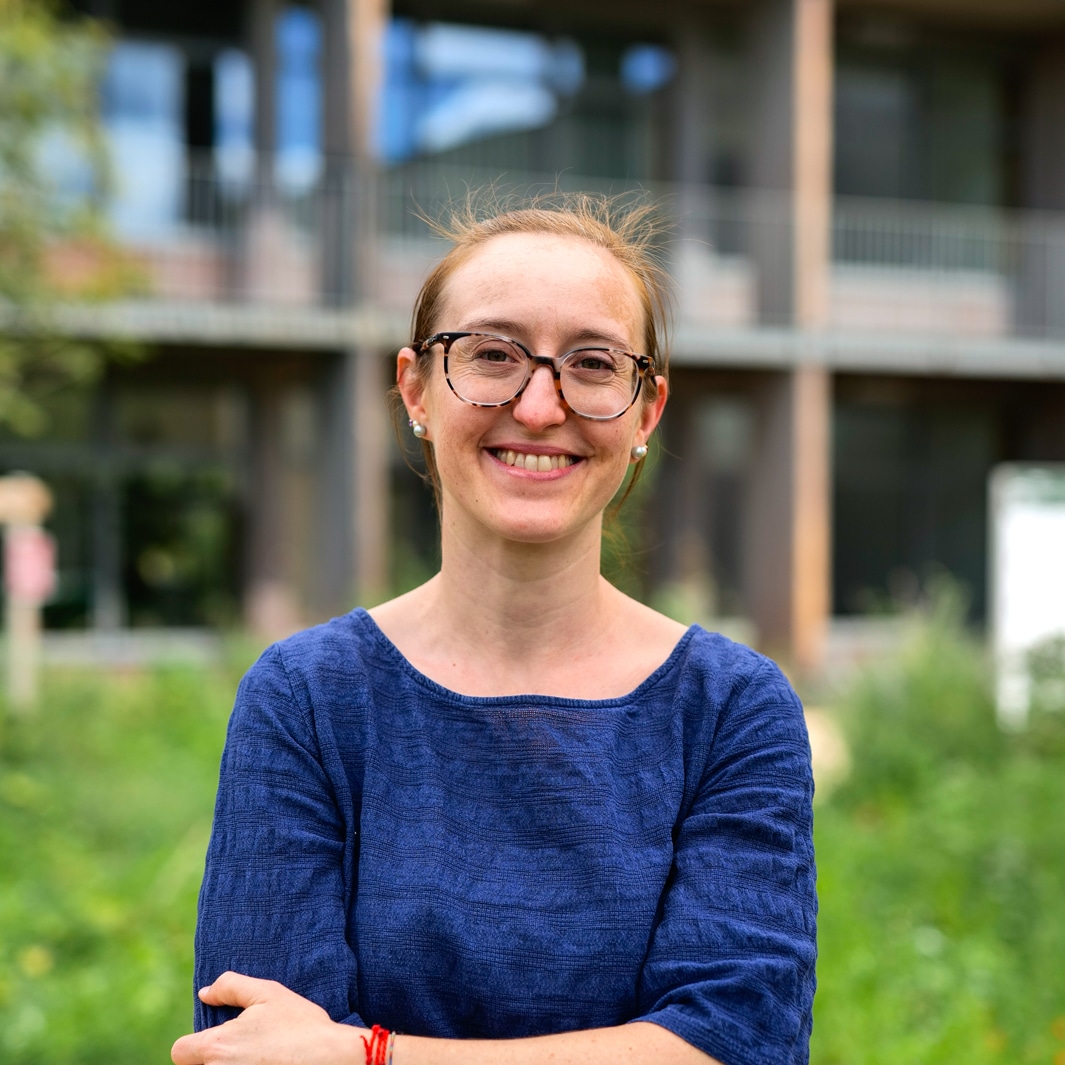
Erica Onnis
Research project
Which Metaphysics of Emergence for a Metaphysics of (Biological) Complexity?
Project summary
The project in a nutshell
Metaphysicians generally agree that ontologically emergent entities (properties, relations, objects, or processes) depend on lower-level goings-on while maintaining some autonomy and manifesting some sort of novelty in relation to them. Yet, there is no agreement about how to understand these commonly recognized features more precisely.
During my research stay, I shall focus on novelty, a concept that in the contemporary metaphysical debate has been consistently interpreted in causal terms. Within this framework, a phenomenon is strongly emergent when it depends on its components and has some novel causal powers. The project aims to demonstrate that the causal interpretation of novelty may be fruitfully integrated with a non-causal one to have more appropriate conceptual tools to investigate emergence outside metaphysics and, specifically, in complex systems.
The causal account of emergence belongs to a metaphysics of emergence that has its roots in the 1990s’ philosophy of mind. However, when complexity is at issue, rather than causal novelty, a “non-primarily-causal” type of novelty that I suggest calling “qualitative” and associate with the appearance of new patterns and structures should be taken into consideration as well. Indeed, while several metaphysicians recognize causal properties as the hallmark of ontological emergence, most complexity scientists direct their attention to special organizations, namely to “structural” properties (spatiotemporal patterns, symmetries, biological structures, and so on).
During my stay, I shall develop the thesis that while new causal properties surely represent a striking kind of ontological novelty, in material systems such as organisms, they must be priorly realized by appropriate structural properties whose emergent status should be properly investigated. By doing so, it will be delineated a pluralist metaphysics of emergence capable of framing in a more appropriate way complex systems and their plural epistemologies.
Emergent novelty: Causal and qualitative
In the contemporary metaphysical debate, emergent novelty is mostly interpreted in causal terms. Many authors propose that a property is ontologically emergent when it is (i) dependent on its components and (ii) capable of exercising novel capacities or powers. Within this framework, alongside dependence, the presence of causal properties not possessed by the emergence base is recognized as the hallmark of strong ontological emergence.
The causal interpretation of novelty has the merit of solving a serious problem identified by Paul Humphreys. Humphreys recognizes that “Perhaps the most characteristic feature of emergent entities is that they are novel” (2016, 29); however, the concept of novelty is plagued by vagueness: “Novelty is usually required to be of a striking kind – not just any novelty will do – but since what counts as an acceptable kind of novelty is rarely, if ever, specified, it is difficult to capture that additional aspect with any generality” (2016, 32). Specifying novelty as causal does the job. Causal novelty – especially when it involves a fundamentally new power – is certainly of a striking kind. However, the causal interpretation of emergent novelty can raise some issues as well, among which there is the fact that properties other than causal are often recognised as emergent.
During my stay, I shall develop the hypothesis that in material systems, causal properties are realized and sustained by non-primarily-causal, or, as I call them, “qualitative” properties (this statement corresponds to admitting that entities such as biological functions do not float free over materiality). This idea can be traced back at least to James Clark Maxwell who, at the end of the nineteenth century, moved an important critique to Galton’s theory of natural inheritance. Discussing the role of “germs”, Maxwell said that “To explain differences of function and development of a germ without assuming differences of structure is therefore to admit that the properties of a germ are not those of a purely material system” (1875, pp. 460-461; see also Radick 2011). Indeed, in complex biological systems, to which I will mainly direct my attention, new functions are always enabled by new structures, both at the molecular and the anatomical level: “In biology, structure dictates function” (Konieczny, Roterman-Konieczna, Spólnik 2023, p. 2).
Emergent causal properties, therefore, are grounded in emergent qualitative properties. Within this framework, emergent causal powers remain fundamental qua causal (they are not causally realized) but are not fundamental qua properties (they are realized, even if qualitatively and not causally). Emergent qualitative properties must be duly analysed, and the nature of the relationship holding between them and the emergent causal roles they confer, enable, or sustain should be clarified.
Emergent novelty in complexity science
As recently stated by David Krakauer, “Complexity science is one of the most radical new scientific paradigms of the twentieth century. It includes paradoxes and challenges as puzzling as those in quantum mechanics and general relativity. Many of these puzzles are connected to the idea of emergence” (Krakauer 2024, p. 18).
Most complexity scientists recognize emergence as one of the hallmarks of complexity. However, emergence is often understood and defined in epistemological terms: emergent systems are systems that are incompressible, unpredictable, or nomologically autonomous, which means that effective (i.e., non-fundamental) theories describing these functionally closed and dynamically sufficient systems can be formulated and applied without considering their lower-level details. Indeed, the possibility and usefulness of effective theories are what bring together phenomena completely different in material components and dynamics.
Besides these epistemic criteria, however, a focus on emergent patterns, uniformities, and hierarchical architectures is quite common among complexity scientists. While these emerging structures are clearly efficacious in enabling new spaces of possibilities, their sophisticated structural nature is prior to the effects they will produce. For this reason, a metaphysics of emergence merely focused on causal novelty will be defective in ignoring important facts about the nature of complexity (its being “organised”, as suggested by Warren Weaver) and the dynamics involved in the realisation of its novel causal capacities.
To conclude, the integration of the causal criterion with the qualitative (i.e., “non-essentially-causal”) one will make possible the delineation of a pluralist metaphysics in which various types of properties will be relevant for emergence, the formulation of regional ontologies, and the philosophical conceptualization of complex systems such as organisms.
Biography
I am an Associate Professor in Theoretical Philosophy at Cusano University, Rome. I’ve been an alumna fellow at the Käte Hamburger Kolleg Cultures of Research (RWTH Aachen University) since 2022 and a member of the Labont – Center for Ontology (University of Turin) since 2015. During my doctoral studies, I was a visiting scholar at the University College Cork, the University of Lisbon, and Wuhan University. My research interests lie in metaphysics and philosophy of science. I study the nature of emergent phenomena and the relationships between the notion of emergence and those of reduction, novelty, complexity, and causation.



